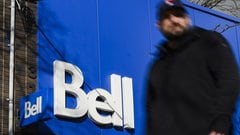Jul 3, 2024
Israel Kills a Hezbollah Senior Commander in South Lebanon
, Bloomberg News

(Bloomberg) -- Israel’s military killed a senior Hezbollah commander in an airstrike on his vehicle in south Lebanon, adding to already intensifying hostilities.
Mohammed Naameh Nasser, the head of the militant group’s Aziz unit, a division in the southern sector, was hit while traveling in the city of Tyre.
Hezbollah retaliated with a calibrated response at a time when a miscalculation could be construed as an act of war. The Lebanese group said it fired 100 Katyusha rockets against an army position in the Israeli-occupied Golan Heights and hit another in the northern town of Kiryat Shmona with artillery fire.
Israel said some of the rockets were intercepted over Kiryat Shmona and others fell in open areas.
Israel has killed hundreds of members of the Iran-backed militia, including other senior figures, since the two sides began near-daily cross-border fire in October. The skirmishes started after the onset of the Israel-Hamas war in Gaza.
The simmering conflict between Israel and Hezbollah has raised fears of an all-out war that could draw in Tehran and other regional powers, and countries including the US, France and Germany are working to prevent an escalation.
Hezbollah is a much stronger force than Hamas, in terms of numbers of fighters and its arsenal of missiles and rockets.
Israel took responsibility for the strike that killed Nasser, saying he led rocket and missile attacks from Lebanon on Israeli civilians and communities.
“Nasser directed a large number of terror attacks toward Israel both during and before the war,” the Israel Defense Forces said in a post on Telegram.
Hezbollah has been firing missiles into Israel in solidarity with Hamas, whose Oct. 7 attack on Israel triggered the war in Gaza. Both Hezbollah and Hamas are considered terrorist organizations by the US.
“We are hitting Hezbollah very hard every day and we will be fully prepared to carry out any action required in Lebanon or reach an agreement — from a position of strength,” Israeli Defense Minister Yoav Gallant said. “We prefer the latter, but if reality forces us, we will know how to fight.”
A month ago, Hezbollah escalated its attacks after Israel killed of a senior military commander called Taleb Abdullah. The Associated Press said Nasser is the most senior Hezbollah official to have been killed since Abdullah.
Nasser took part in operations in Iraq and in Syria between 2011 and 2015, when Hezbollah supported President Bashar Al-Assad in the country’s civil war. Hezbollah also confirmed he planned and supervised several assaults against Israel since Oct. 7.
Hezbollah has repeatedly told mediators it will only halt its attacks once there’s a cease-fire in Gaza. The US, Egypt and Qatar have been trying to broker such a deal between Israel and Hamas for months.
Israel wants Hezbollah fighters to retreat at least 10 kilometers (6.2 miles) from the border. That should allow Prime Minister Benjamin Netanyahu’s government to bring back tens of thousands of civilians who were evacuated from the north of Israel once the skirmishes began.
On the Lebanese side of the border, a similar number of people have fled and Israeli strikes have leveled several neighborhoods. Lebanon is reeling from an economic and financial meltdown that started nearly four years ago and a war on its soil could spell more devastation.
The group has said that while it doesn’t want a war with Israel, it is ready for one. An Iranian official told the Financial Times this week that Tehran would support Hezbollah directly and via other allied militias in the region in the event of a full-blown conflict.
Israeli bonds have been among the worst performers in emerging markets in the past two weeks, in part because of tensions with Hezbollah worsening.
--With assistance from Galit Altstein and Alisa Odenheimer.
(Updates with Hezbollah’s response)
©2024 Bloomberg L.P.








